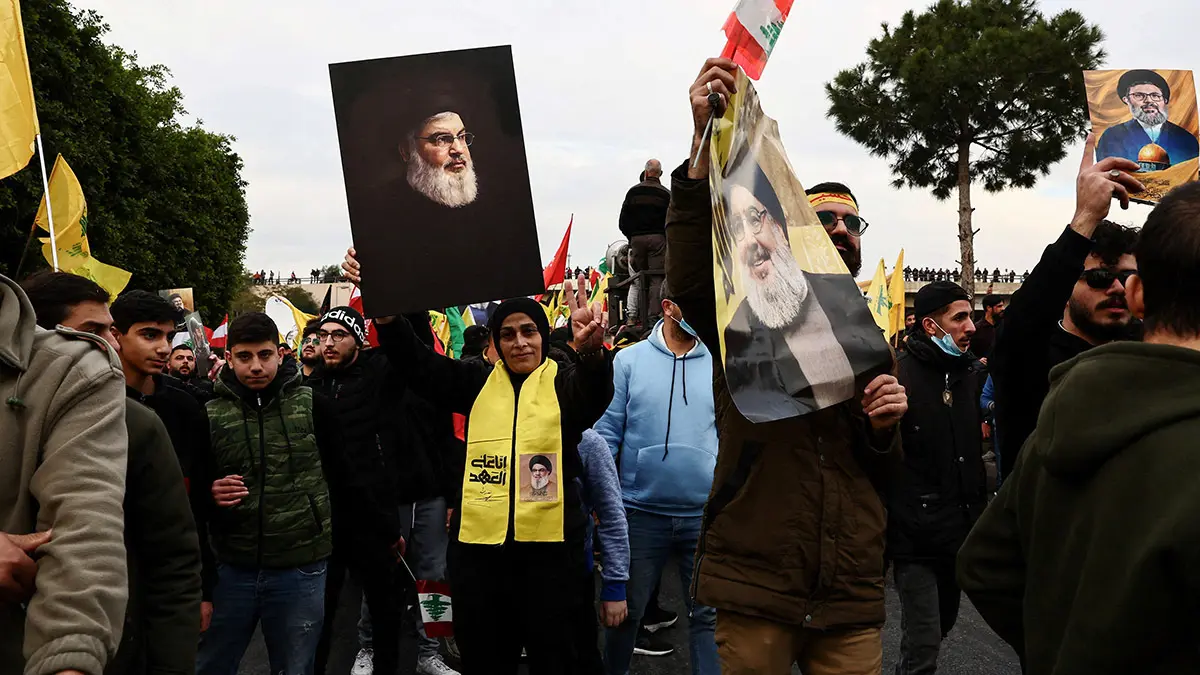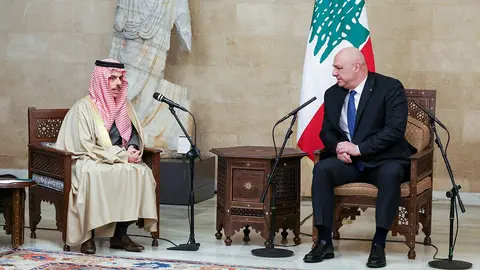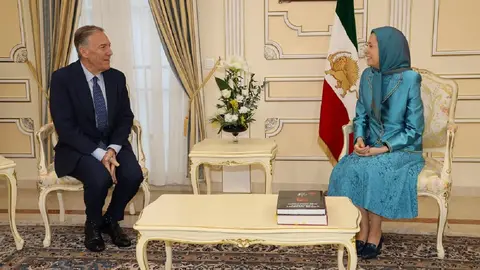Lebanon prepares for the post-Hezbollah era

The new Lebanon is seeking to design the new national stage following the control of Hezbollah, according to the latest statements from the Lebanese government.
The Lebanese executive removed the reference to the role of the ‘resistance’ in the defence of the nation, something that removes Hezbollah from the picture and blocks Iran's influence through arms and funding.
For the first time in over two decades, the government’s statement, observers said, turned away from legitimising Hezbollah’s role in defending Lebanon.
The statement, approved by the Council of Ministers headed by Prime Minister Nawaf Salam on Monday, laid out the government’s priorities, focusing on national sovereignty, disarmament and adherence to UN Resolution 1701.
The term “armed resistance” has long been associated with Hezbollah and the group’s justification for maintaining an armed presence outside state control, arguing this is necessary to defend Lebanon from Israeli aggression.
The move comes after Hezbollah suffered a series of military and political setbacks, including the assassination of a number of its senior leaders by Israel, including its chief, Sayyyed Hassan Nasrallah, along with devastating air strikes targeting its infrastructure in Lebanon and Syria.
Since the Taif Agreement in 1989, successive Lebanese governments have included some reference to armed resistance in their policy statements, which was historically used as a broad reference to Beirut’s right to resist Israeli occupation.
Former prime minister Salim Hoss, who served several terms from 1976 to 2000, had constantly emphasised the need to liberate south Lebanon from the Israeli occupation and had supported a “valiant resistance.”
Similar references appeared in the policy statements of former premier Omar Karami in 1991, who affirmed the Lebanese people’s right to legitimate resistance under the UN Charter, and Prime Minister Rafik Hariri in 1995, who had declared resisting occupation a “national and political duty” and affirmed that confronting occupation through all available means was both a right and a duty.
Even after Israel’s withdrawal from South Lebanon in 2000, the term remained in use, despite mounting political divisions over Hezbollah’s armed wing. While the language became more vague in recent years, the reference to “resistance” was consistently included, until now.
Observers believe that countering Iranian influence in Lebanon will provide an opportunity to create other diverse partnerships that can help in finding quick solutions to Lebanon’s social and financial crises, including partnerships with Gulf states, and Western countries. These players, observers say, can offer investments in key projects such as oil and gas exploration, without Hezbollah blocking any future agreements to prevent foreign investments and strengthen Iran’s influence.
In the policy statement, Lebanon also abandoned the previous obstacles that Hezbollah and its allies placed in the way of foreign funding by announcing its intention to turn to the International Monetary Fund (IMF).
The policy statement stated that the Lebanese government will negotiate a new programme with the IMF and that it is working to address the financial crisis and public debt.
Hezbollah’s loyalists and allies denounced the policy statement as a “dangerous” departure from Lebanon’s historical stance on armed resistance against Israel.
Hezbollah MP Hassan Fadlallah criticised the government for what he called an attempt to “appease Western powers,” warning that Lebanon could not abandon its right to defend itself. Meanwhile, members of the anti-Hezbollah opposition welcomed the change as “long overdue.”
MP Ashraf Rifi, a long-time critic of Hezbollah, called the omission a step toward reasserting state sovereignty, arguing that Lebanon must separate itself from Hezbollah’s regional conflicts and align with Arab and international partners.
The policy statement will be debated in parliament on February 25 and 26, during which Salam’s cabinet will need to obtain parliament’s vote of confidence to begin its work.
The statement also stressed the need to engage in dialogue with Syria, strengthen border security and facilitate the return of Syrian refugees. It further pledged that Lebanon will not be used as a platform to attack allied and friendly nations.
Beyond security and foreign policy, the statement highlighted the government’s intention to establish a reconstruction fund to ensure transparency in rebuilding efforts following the last year’s devastating clashes with Israel, which had displaced thousands and exacerbated the country’s economic crisis.
It also stressed commitment to judicial independence and supported the resumption of investigations into the Beirut port blast, a demand long pushed by families of the victims.










